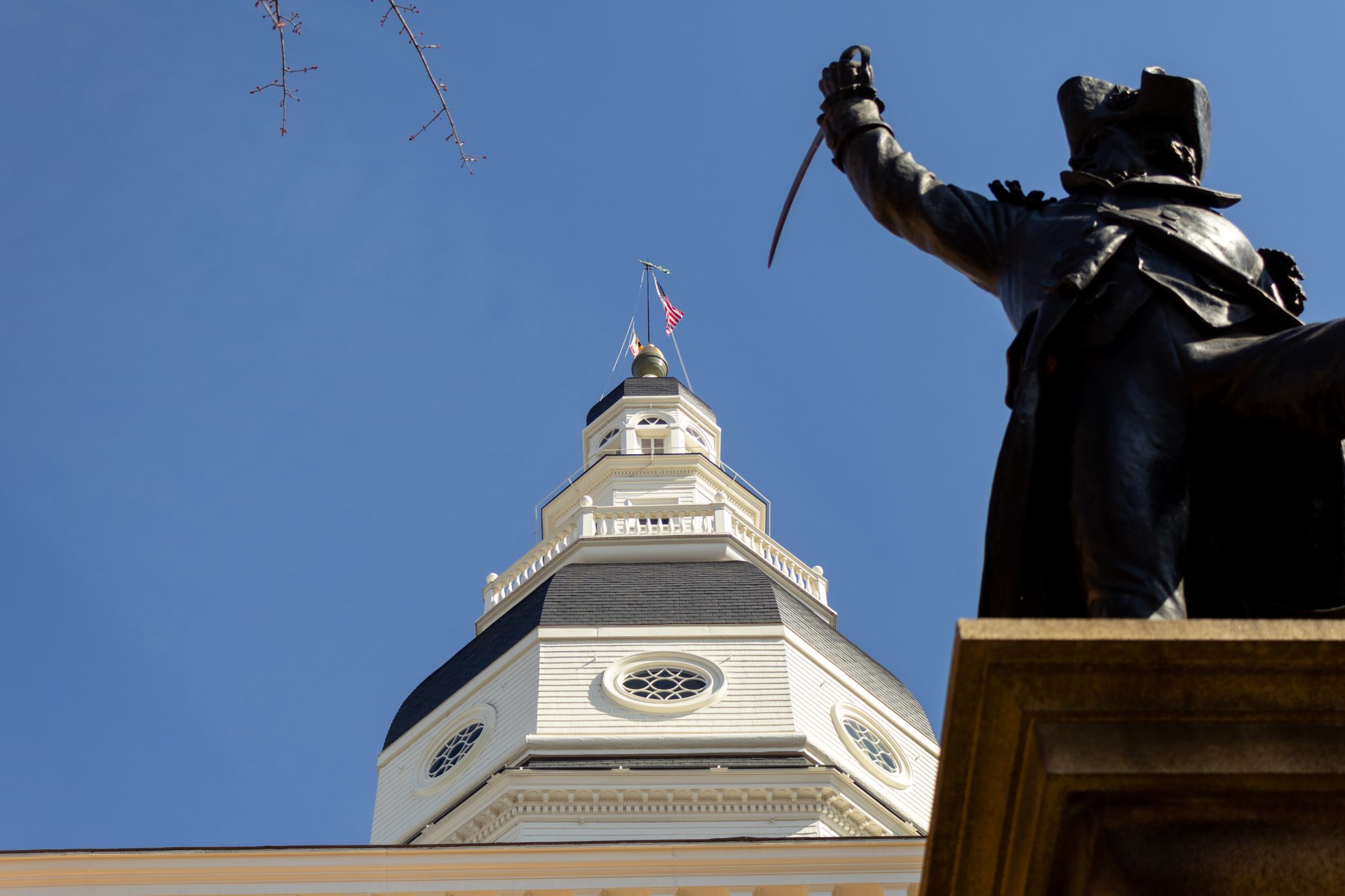The Maryland General Assembly failed to pass many of Gov. Wes Moore’s legislative priorities before the end of its session on April 7.
Despite passing more than 800 bills during the 90-day session, Moore said in a news release on April 7 that lawmakers “missed an opportunity” to pass some of his priorities that would foster economic growth and invest in Marylanders.
“Marylanders deserve affordable homes, affordable energy options, and a government that makes it easier for small businesses to thrive,” Moore wrote in the statement. “These aspirations are a core part of our pro-growth strategy, and I will use every option available to me as the state’s chief executive to address the issues that Marylanders care about most.”
Here are some of Moore’s priority legislation that lawmakers failed to pass this session.
Reforms to the Blueprint for Maryland’s Future
Moore introduced a bill in January to cut back spending for the Blueprint for Maryland’s Future, a broad education reform program that the General Assembly passed in 2021. The program will provide $3.8 billion annually to public schools across the state over 10 years.
Moore’s proposed bill, the Excellence in Maryland Public Schools Act, originally would have delayed the introduction of more “collaborative,” non-instructional, time for teachers by at least four years. The bill would have also stopped funding increases for community schools — schools in areas of concentrated poverty.
[Here’s a look at bills the Maryland General Assembly passed this legislative session]
Moore’s administration cited the teacher shortage, a growing number of community schools and the $3 billion deficit the state faced this session as reasons for adjustments to the program. The proposed changes would have ensured the Blueprint could still be fully implemented on time, Moore’s chief of staff Fagan Harris told lawmakers in a joint committee hearing on Feb. 19.
The bill’s proposed cuts to the Blueprint were reduced by the end of the legislative session.
Lawmakers compromised with Moore and paused the implementation of collaborative time for three fiscal years, but kept provisions for funding increases the same.
“While there is a delay to increased funding dedicated for collaborative time implementation, the final bill is a significant improvement over where this conversation began in January,” Maryland State Education Association president Paul Lemle wrote in a statement on April 7. “We were able to avoid the near-immediate, outsized cuts to expected funding for students in poverty and multilingual learners, in particular.”
The “commonsense adjustments” to the Blueprint would improve education across the state, Moore wrote in his April 7 news release.
Housing
One of Moore’s bills, The Housing for Jobs Act, would have expedited housing development by requiring local jurisdictions to approve new housing projects in areas with housing gaps. The bill would have encouraged the development of more affordable housing.
The House of Delegates heavily amended the bill before dying in the Senate’s education, energy and environment committee when the legislative session concluded on April 7.
The act came after Moore’s 2024 three-bill housing package that promoted affordable housing development, strengthened renter protections and formed an organization that secures federal funding and incentivizes development.
“While we have communities that are thriving because of the work and the leadership and the partnership that we have, there are still communities that are still dealing with this deep challenge of housing,” Moore told lawmakers in a committee hearing for the bill on March 4.
[Maryland legislature finalizes budget plan that reduces USM funding by $155 million]
Businesses
Strengthening Maryland’s economy and making the state more economically competitive was one of Moore’s top priorities throughout the session.
The DECADE Act, a broad business bill that failed to pass the House, would have overhauled the state’s economic development framework by restructuring agencies, revising tax credit programs for certain industries, updating financial assistance eligibility and establishing new priorities for industry growth.
“I am a big believer that making these investments is not risky,” Moore told the Senate budget and taxation committee on March 4. “Not making these investments is actually much riskier.”
Moore told the committee the bill was intended to ensure the state is not “continuing on a pace where we have slow and stagnant growth at a time when the rest of the country is just growing faster than us.”
After passing the Senate 39-4 on April 4, the bill failed to advance before the session ended.
Energy
Another failed bill from Moore, the ENERGIZE Act, would have classified nuclear energy as clean energy, allowing it to count toward Maryland’s clean energy goals. The bill would have incentivized nuclear energy production and renamed the state’s renewable energy portfolio to the clean energy portfolio.
The bill failed to pass the Senate before midnight on the final day of the session. The bill was gutted during the session, with parts of it added to the Next Generation Energy Act, which will spur new nuclear and gas energy development and expedite approvals for energy projects.
“The General Assembly failed to make nuclear energy a core part of the state’s clean energy strategy, so we could add more capacity to Maryland’s energy portfolio,” Moore wrote in his news release on April 7.



